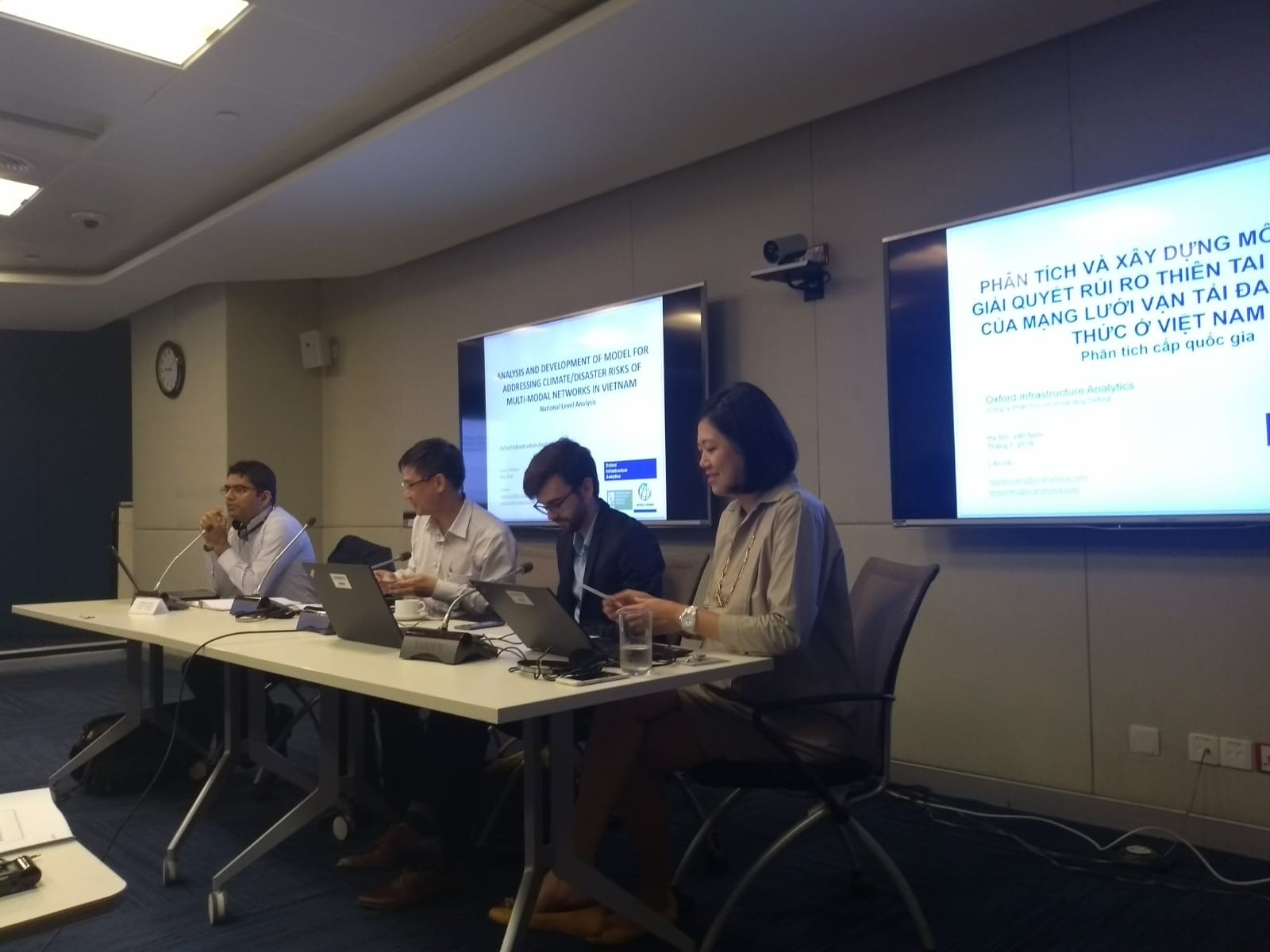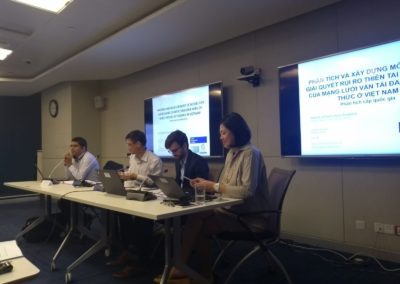Keywords: Adaptation analysis, climate change, transport networks, Vietnam
The challenge/objective
This analytical work aimed to set out a vision and strategy for climate-smart transport in Vietnam, in order to ensuring its resilience against future risks. The analytical findings and recommendations were presented in the report, Volume 2—Pathway to Resilient Transport, which provides a methodological framework to analyze network criticality and vulnerability, and to prioritize investments to enhance resilience.
What we did
This study was conducted at two scales, national and provincial. The national analysis covered estimating economic impacts of freight disruption on key national-scale roads, railways, civil aviation, inland waterways, and maritime systems that make up Vietnam’s multimodal transportation infrastructure. The province-scale analysis involved estimating the economic impacts of lack of access to roads between key locations within communities in three specific provinces. A novel adaptation analysis created in the study explored the measures intended to improve the structural reliability of road assets to make them more resistant to climate change impacts. The effectiveness of adaptation options for a particular road asset were quantified through a cost-benefit analysis by comparing the investment costs of the options with the benefits of avoided risks.
Results & insights
The analysis showed that due to climate change, exposures and risks from more frequent and extreme hazards would substantially increase for all transport sectors in Vietnam.
Vietnam’s road networks would require significant investments to overhaul existing road assets to higher climate-resilient design standards. For the 20 worst-impacted national roads investment costs could be high, but the cumulative benefits over 35 years of such investments were substantial, where for every 1 US$ invested in enhancing climate resilience the benefits of avoiding risks would be equivalent to safeguarding US$ 7 – 23 of economic value. Similarly, the study showed high benefits of investing in building climate resilience of local roads and bridges.

Oxford Team member Dr. Raghav Pant (left most) presenting project findings to World Bank and Ministry of Transport officials in Vietnam in May 2018. (Photo credit: Mr. Tom Russell)
Impact
The project produced a high-level World Bank publication that was supported by the Ministry of Transport in Vietnam. The report made recommendations to the Ministry of Transport on the scientific evidence required to develop a national strategy for climate resilient transport and plans—as part of the transport sector’s contribution to the Nationally Determined Contributions (NDCs)—to meet the Paris Climate Agreement targets.
… for every 1 US$ invested in enhancing climate resilience, the benefits of avoiding risks would be equivalent to safeguarding US$ 7 – 23 of economic value.
Project duration:
Jan 2018 – Jan 2019
Institutions:
University of Oxford-led Infrastructure Transitions Research Consortium (ITRC)
View vietnam-transport on GitHub and Read the Docs.





